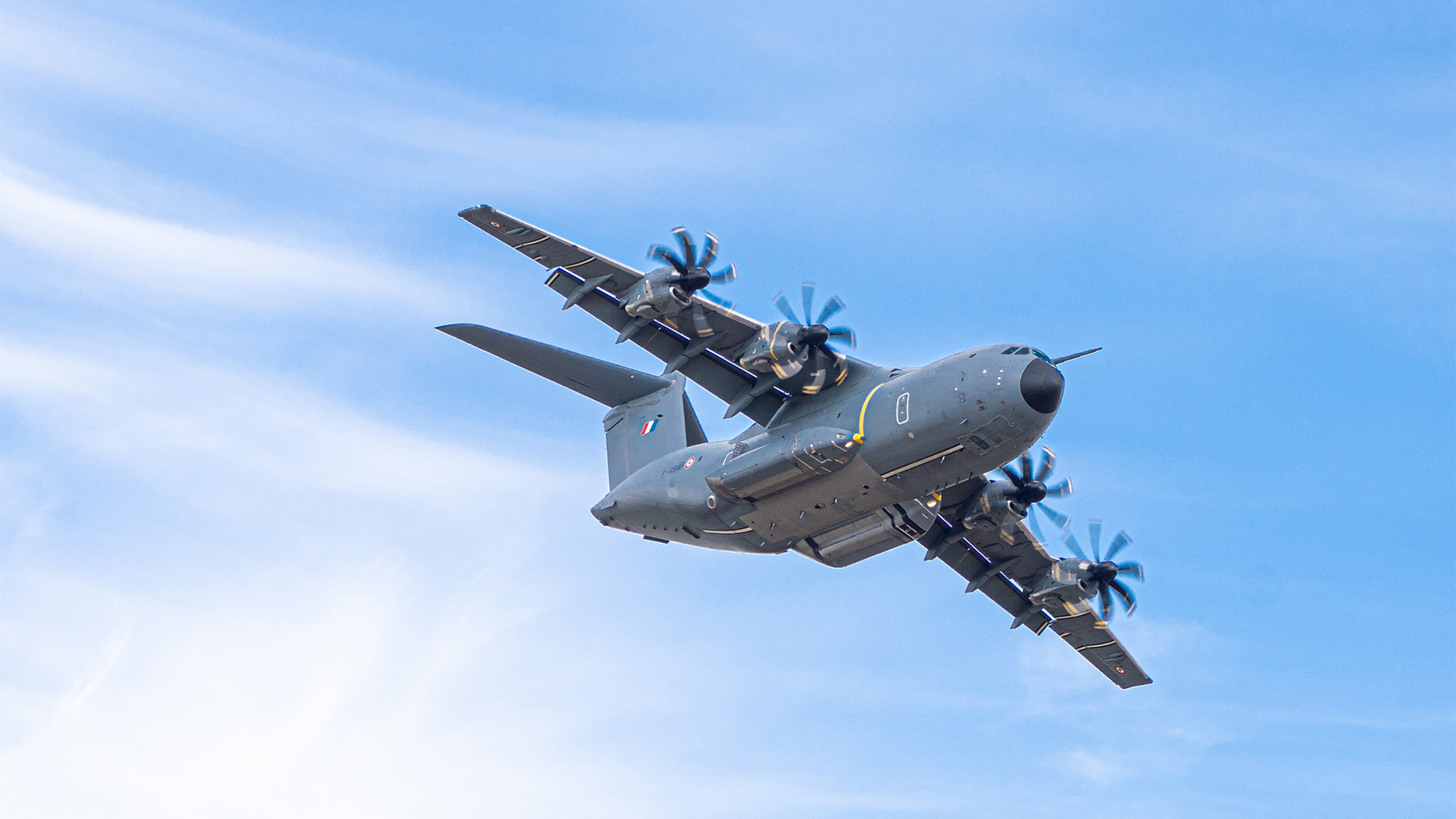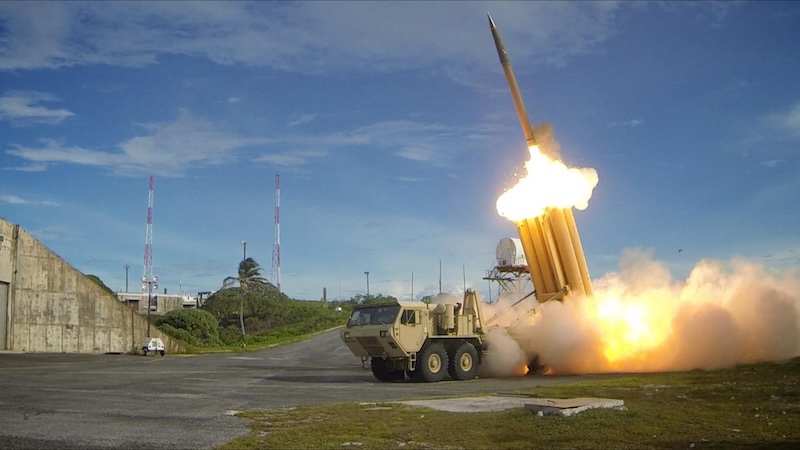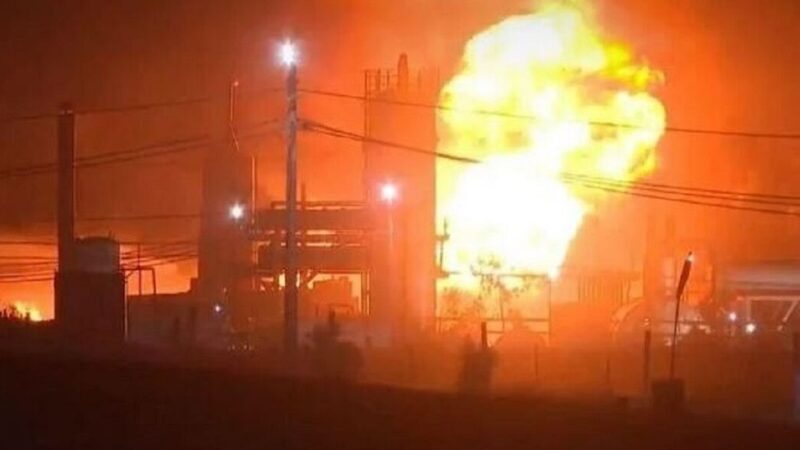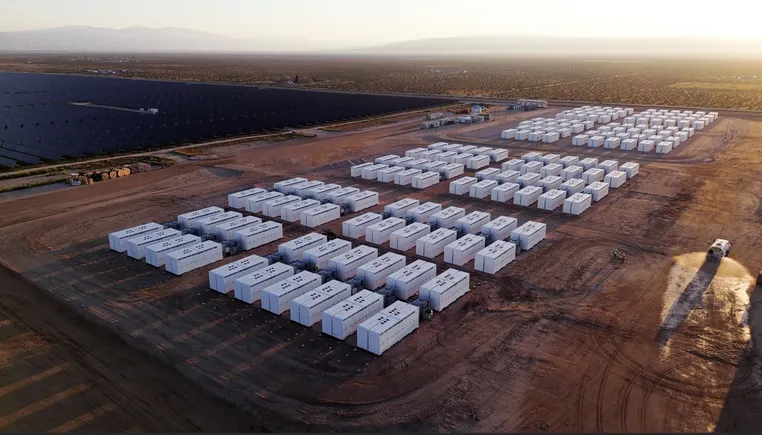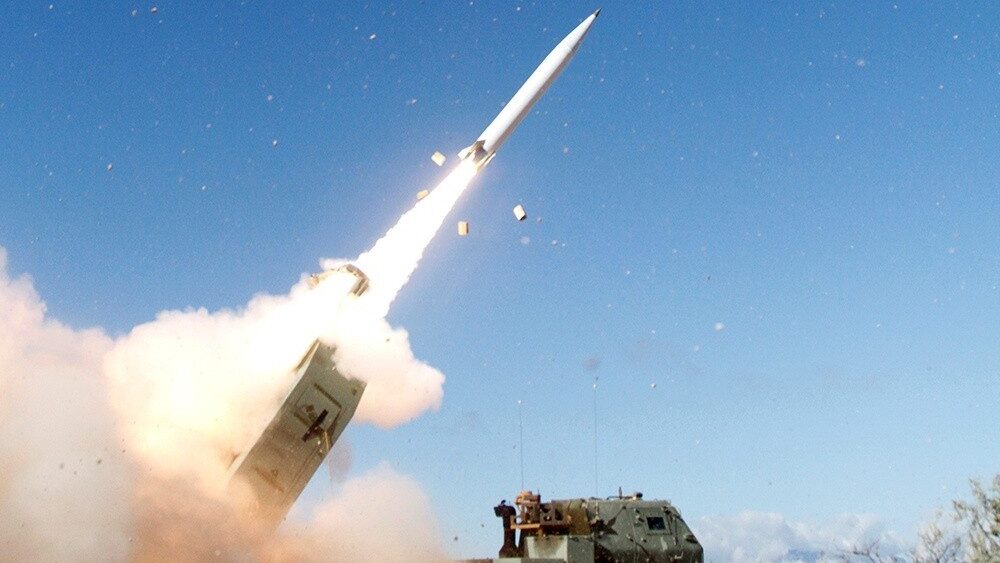Will Israeli strikes impede Iran’s defense exports to Russia?
Several experts said that while it’s too soon to know the full extent of the impact on the Russia-Ukraine war, there are a few key areas to watch.
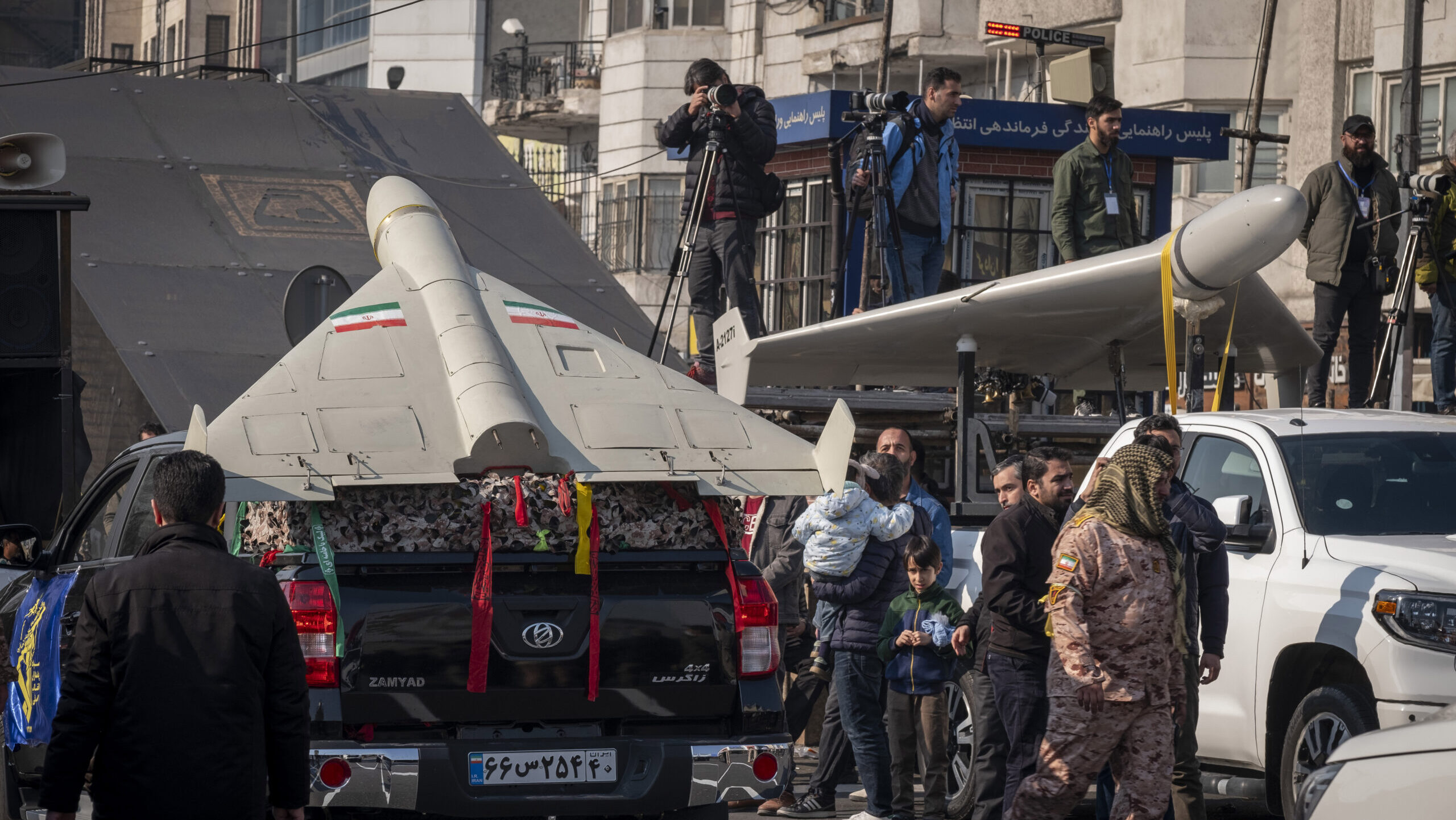

Iranian-made unmanned aerial vehicles (UAV), the Shahed-136, are pictured during a military rally in downtown Tehran, Iran, on January 10, 2025. (Photo by Morteza Nikoubazl/NurPhoto via Getty Images)
BEIRUT — As Israel and Iran trade airstrikes for the fifth day, questions remain about Iran’s capacity to respond to Jerusalem’s barrages — but also its capacity to play another role in another war: that of a supplier of defense equipment to Russia for its invasion of Ukraine.
For years the US has accused Tehran of exporting military materiel for Moscow’s use, most notably a fleet of deadly drones, but also purportedly missiles and other platforms. In January, the two nations inked a formal strategic cooperation agreement.
For now, several experts told Breaking Defense that with missiles still flying back and forth in the Middle East, it’s unclear what the long-term effect of Israel’s strikes on Iran could have on the Ukraine war, but some highlighted a few key potential consequences — and none of them are positive for Moscow.
“If Iran’s own production capacity is compromised, its ability to supply military equipment, including drones and potentially components for ballistic missiles, to Russia could diminish,” said Kristian Alexander, a senior fellow at the United Arab Emirate-based Rabdan Security and Defence Institute. “This could force Russia to seek alternative suppliers or rely more heavily on its own, potentially less sophisticated, domestic production, or accelerate its own in-house manufacturing efforts. Russia might have already stockpiled critical components, mitigating short-term shortages.”
Likewise the head of Global and Emerging Risks at the Geneva Center for Security Policy, Jean Marc Rickli, said he thought there would be “some consequences on Iran-Russia military cooperation.”
“Firstly, the Iranians are now fully concentrated on warding off Israeli attacks and thus should no longer be in a situation to deliver weapons to Russia,” he said.
Specifically, among the many targets Israel has struck inside Iran is reportedly Shiraz, a city in southern Iran said to host missile facilities. While it’s unclear exactly what Israel hit, the city is home to Shiraz Electronics Industries, a US Treasury Department sanctioned entity which Alexander said is “widely understood to be involved in the development and production of key military systems, including radars, avionics, missile guidance electronics, and components relevant to drone technology.” (In March, the US government said Shiraz was “linked” to Iran’s Revolutionary Guard (IRGC) and said the IRGC sells weapons and drones to Russia, among others.)
There’s also the matter of personnel. Rickli told Breaking defense that the reported death of IRGC aerospace commander Amir Ali Hajizadeh could reverberate in Red Square. Hajizadeh was personally sanctioned by the UK in September as a “key individual” who “facilitat[ed] Iran’s military support to Russia.”
“He played a central role in advancing Iran’s drone and missile capabilities and oversaw Tehran’s supply of Shahed-type drones to Russia,” Rickli said.
However, analysts like Omar Al-Ghusbi pointed out that Russia may have already blunted some impact of a disruption in Iran’s production capabilities by bringing the manufacture of key Iranian systems like the Shahed within its own borders.
“Israeli attacks have targeted Iranian production and research capabilities, although it is unclear what their current damage levels are and how this will affect domestic Russian Geran-2 [Shahed-136] UAV production until more time has passed,” said Al-Ghusbi, senior analyst at the geopolitical data analytics organization C4ADS. “It should be noted that much of the Geran’s production is now localized in Russia, however, according to our previous analysis of the Geran-2 UAVs, certain subsystems such as the Iranian-produced MD-550 engine appears to still be used in the third generation of Geran-2.”
Al Ghusbi, who recently co-authored a report on Iranian drone production in Russia, noted that the Russians are “currently producing a fourth generation and it is unclear if they are still using this engine, but — if so — consider it a system that may be impacted by the strikes.”
David Des Roches, associate professor at the Near East South Asia Center for Security Studies, said that although “the Iranians have exported the entire Shahed production line to Russia, there’s going to be shortages across the board for both countries.”
Overall, Des Roches said he expected there to be a “marginal effect” on Russian operations in Ukraine, leading to “some diminution in deep strikes.”
Another analyst, Andreas Krieg, acknowledged there could be some impact on Russia’s drone capability, but he wasn’t convinced the war on Iran would really change things for the war in Eastern Europe.
“I think it would be exaggerated to say striking these sites will have direct impact on the war in Ukraine,” he said. “Russia isn’t overly reliant on Iranian tech. At heart, Russian defence industrial complex is quite self-sufficient.”
















































































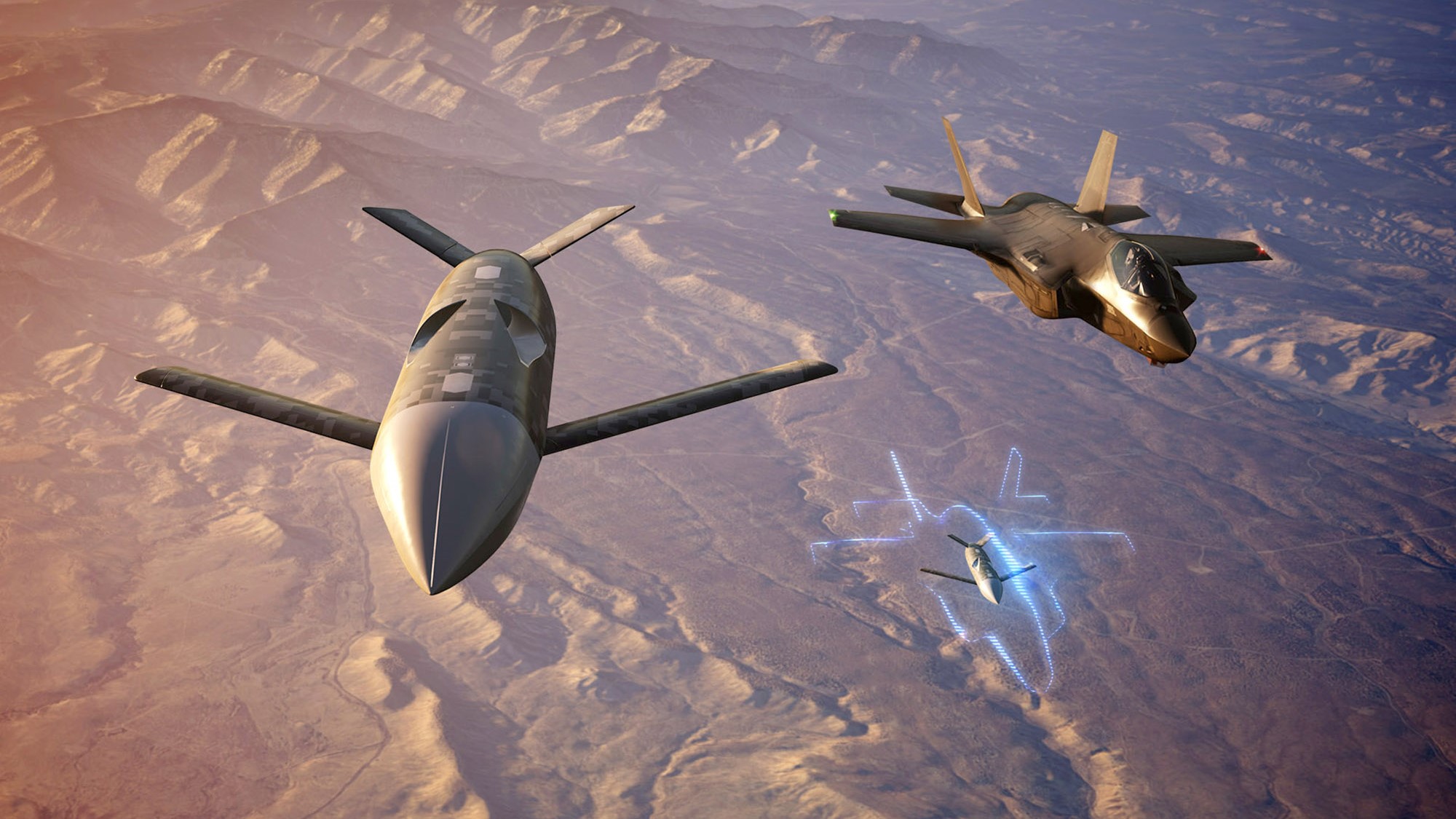

![The sights of the Paris Air Show Day 2 [Photos]](https://breakingdefense.com/wp-content/uploads/sites/3/2025/06/IMG_1837-scaled-e1750181568851.jpg?#)
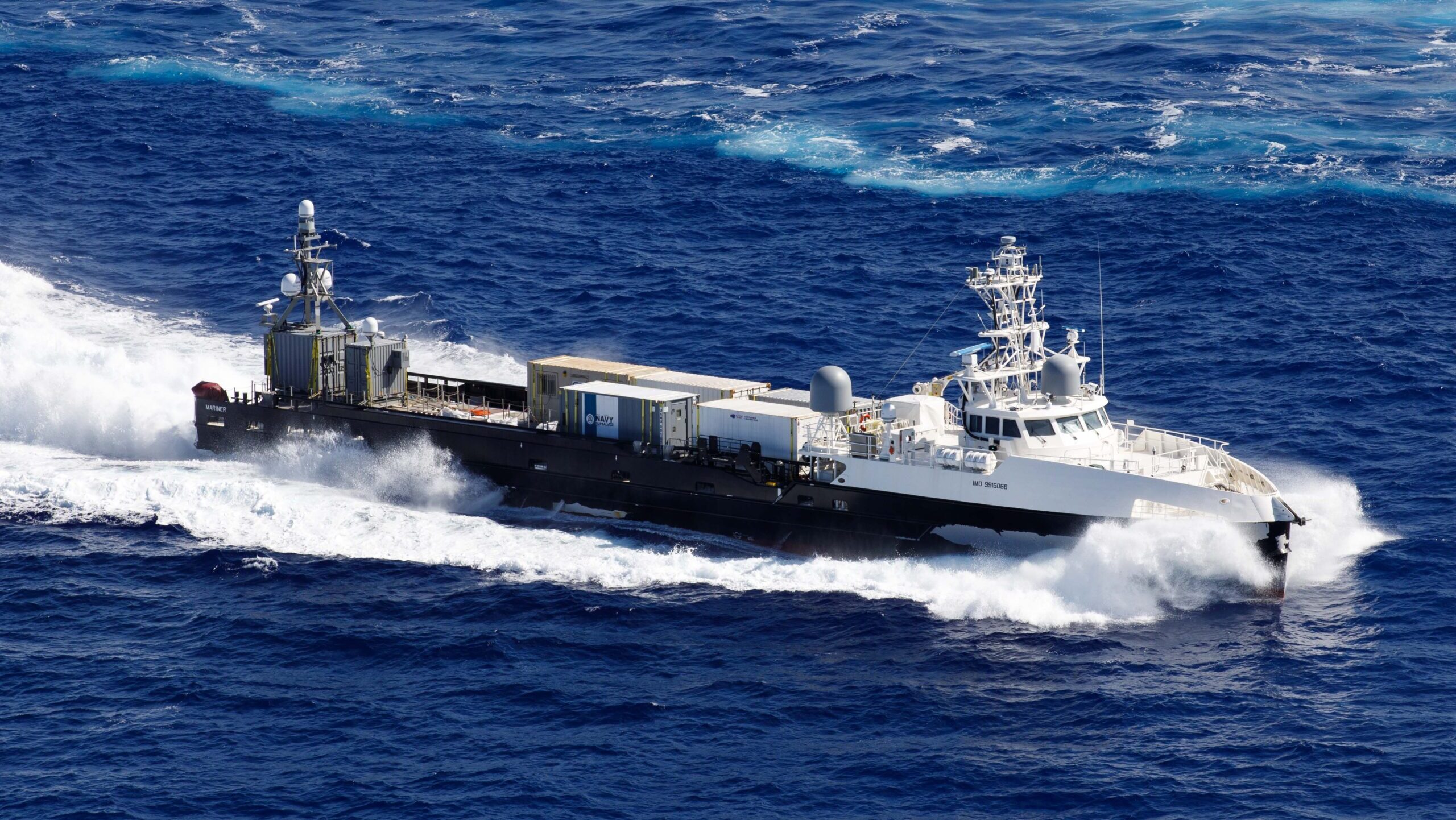










![[Updated] U.S. Air Force Mobilizes F-22s and F-35s as Situation in Middle East Escalates](https://theaviationist.com/wp-content/uploads/2025/06/F-22_F-35_CENTCOM-top.jpg)
